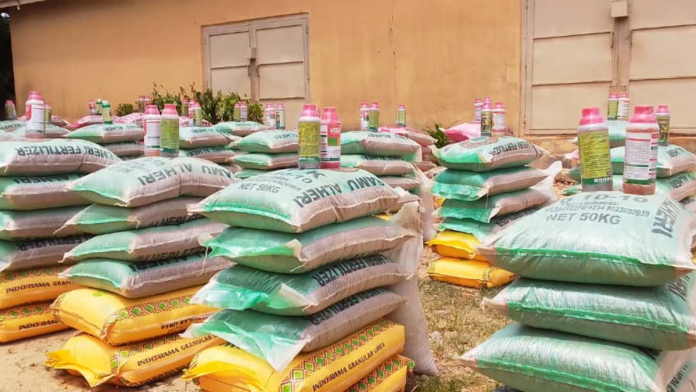News in brief: The Nigerian government has started distributing subsidised farm inputs to farmers in the North Western regions, with a focus on rice, sorghum, and maize crops. It is targeting food and nutrition security enhancement, reducing post-harvest losses, and attracting private sector investments in agriculture.
The federal government of Nigeria has commenced the distribution of subsidised farm inputs to farmer in the North Western regions of the country, a local media report says.
Farmers in states like Niger, Kano, Jigawa, Sokoto as well as Kebbi are in line to benefit from the first distribution scheme which focuses on crops like rice, sorghum, and maize.
Mabel Obe, the Principal Information Officer of the Federal Ministry of Agriculture and Rural Development, mentioned that the ministry was handling the distribution through the National Agricultural Growth Scheme and Agropocket (NAGS-AP).
Obe added that the initiative would boost food and nutrition security while attracting private sector investments. It also aims at reducing post-harvest losses by improving the value chain for local agriculture produce.
Kano State governor, Abba Yusuf, lauded the initiative saying that it is being implemented through the Agricultural Transformation Agenda Support Programme Phase One (ATASP-1), funded by the African Development Bank (AfDB). According to him, this is a pilot phase that will pave way for successful implementation of the forthcoming Policy Based Operation (PBO).
The PBO is a Sector Budget Support (SBS) operation prepared under the African Emergency Food Production Facility (AEFPF) of the development bank.
Permanent Secretary of the Ministry of Agriculture and Rural Development, Dr. Ernest Umakhihe, highlighted the significance of the exercise and its effect on boosting agricultural production and guaranteeing access to quality agricultural inputs.
The programme will support 60,000 farmers in the five ATASP-1 states with highly subsidised inputs, with the government paying 80% of the cost of the input package and 20% left for participating farmers. The ministry is using an ICT platform, approved earlier in 2023, to ensure the disbursement goes smoothly and effectively.



